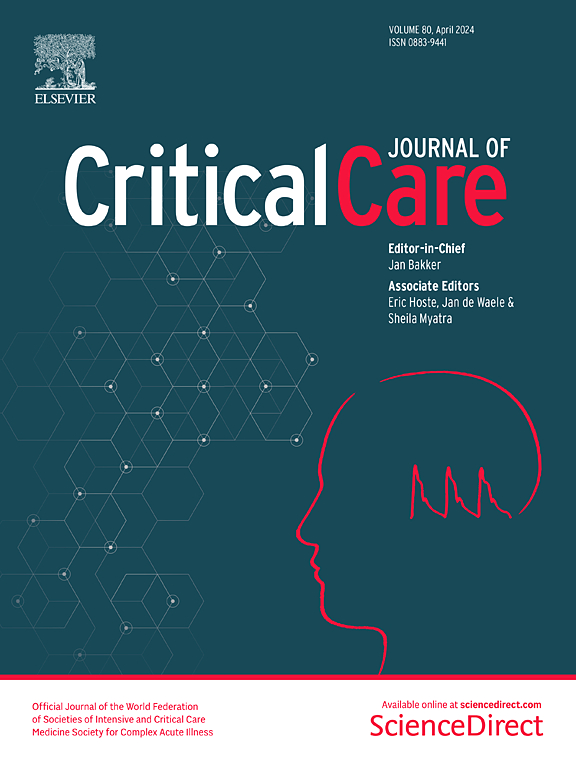打破平衡:复苏后早期液体积聚和心脏骤停后的结果
IF 9.3
1区 医学
Q1 CRITICAL CARE MEDICINE
引用次数: 0
摘要
在109名院外心脏骤停复苏并入住三级重症监护病房(ICU)的成年人队列中,非幸存者在复苏后的前96小时内表现出更高的平均液体摄入量,减少的尿量和更高的累积阳性液体平衡。校正混杂因素后,每日平均体液平衡的增加与ICU死亡率独立相关。这些观察结果表明,持续的液体正平衡与不良后果有关,强调了心脏骤停后更个性化或限制性液体管理的潜在价值。本文章由计算机程序翻译,如有差异,请以英文原文为准。
Tipping the balance: early post-resuscitation fluid accumulation and outcome after cardiac arrest
In a cohort of 109 adults resuscitated from out-of-hospital cardiac arrest and admitted to a tertiary intensive care unit (ICU), non-survivors showed higher mean fluid intake, reduced urine output, and greater cumulative positive fluid balance during the first 96 h after resuscitation. Daily increases in mean fluid balance were independently associated with ICU mortality after adjustment for confounding factors. These observations suggest that sustained positive fluid balance is linked to adverse outcomes, underscoring the potential value of more individualized or restrictive fluid management following cardiac arrest.
求助全文
通过发布文献求助,成功后即可免费获取论文全文。
去求助
来源期刊

Critical Care
医学-危重病医学
CiteScore
20.60
自引率
3.30%
发文量
348
审稿时长
1.5 months
期刊介绍:
Critical Care is an esteemed international medical journal that undergoes a rigorous peer-review process to maintain its high quality standards. Its primary objective is to enhance the healthcare services offered to critically ill patients. To achieve this, the journal focuses on gathering, exchanging, disseminating, and endorsing evidence-based information that is highly relevant to intensivists. By doing so, Critical Care seeks to provide a thorough and inclusive examination of the intensive care field.
 求助内容:
求助内容: 应助结果提醒方式:
应助结果提醒方式:


